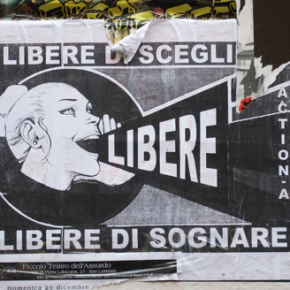A diverse group of mostly Jewish peace activists descended on Washington from February 26-28 to attend the second national conference of J Street, America’s largest “pro-Israel, pro-peace” advocacy group.
For some observers and participants, that spectrum was disturbing. For others, it was a powerful statement of passion and support for an active and positive US role in bringing an end to a century-long conflict between Israel and the Palestinians. For years, Middle East-focused political activism in the United States was the province of large lobbying groups advocating support for virtually all Israeli positions, with only a few scattered, small and radical peace or pro-Arab organizations.
While those groups have grown, and a few other advocacy organizations have expanded their reach in recent years, J Street, a group advocating in Washington what would be considered a centrist position in Europe, was a major breakthrough in American activism. With US Mideast policy myopically focused on Israel, and in recent years, Afghanistan and Iraq, activists working for Palestinian rights, as well as America’s role in the Middle East, welcomed a group that might have the credibility to finally open the debate. If the issue of Israel could be broached, so could the rest of America’s regional policies.
At the J Street conference, there were controversial conversations about boycotting Israel, about talking to the religious militant group Hamas, and whether Israelis “care about peace.” For some, these discussions, all extremely well attended, raised questions about J Street’s agenda and identity. J Street walks a very delicate path. Its essential raison d’etre is to influence American foreign policy in a pro-peace direction. It must, therefore keep its policies moderate or risk losing its credibility and access on Capitol Hill.
That access is crucial. The United States has played a terribly destructive role for a very long time, not only in Israel-Palestine, but in the entire Middle East. Any hope that the Obama Administration would change that course was squashed early on in Afghanistan, and is being further destroyed today by the US-led Libyan campaign.
The failed American approach to the region, which is a big part of what is being spit at by crowds calling for democracy in Tunisia, Egypt, Yemen, Bahrain and elsewhere, has been consistent for six decades. If that entrenched policy is going to be altered, it will have to start where it is most obviously obsolete: Israel and Palestine. J Street and groups like it hold the potential to spearhead that change in the most stubborn spot, the US Congress.
Many of J Street’s supporters hold less moderate positions than the organization itself. J Street needs to keep those supporters if it is to be seen as representing a large enough base to be taken seriously in Washington, where decisions are generally based on the next election. Some hawks already attack J Street based on the views of its more left-wing supporters, often ignoring the group’s actual stated positions. The group is regularly berated in major American news outlets like The Washington Post, where reactionary blogger Jennifer Rubin has made a crusade against J Street her personal mission. Even the Israeli Knesset has called hearings to look into J Street’s activities.
The easy part for J Street has been keeping its appeal among its more “radical” supporters. Those folks generally understand that J Street’s purpose is to work in Washington, and that many of their views simply won’t play there for now. There are other groups working to create the political space for such ideas, such as the American-Arab Anti-Discrimination Committee, the American Friends’ Services Committee, Jewish Voice for Peace, the Jerusalem Fund and the American Association for Palestinian Equal Rights.
The hard part these days is trying to keep some sort of political focus as the framework of the Oslo Peace Process crumbles to dust. In 2009, when J Street held its first conference, there was an atmosphere of hope. The Obama Administration had made peace a priority; the new lobbying group enjoyed some access to the White House; and key members of Congress were backing, however tentatively, the new president’s approach.
In 2011, things are different. There are no peace talks now, the atmosphere of mistrust in Israel is higher than it has been in decades, the Israeli government is its most hawkish ever, the Palestinians are divided in ten different ways, and the revelation of the sort of concessions their negotiators had been prepared to make led to the resignation of the Palestinian Authority’s peace negotiators, en masse.
Meanwhile, the Obama Administration was seen to have supported former Egyptian President Hosni Mubarak to his bitter end. Indeed, it has been neutral at best, and unwelcoming at worst regarding pro-democracy movements in the Arab world (while hypocritically criticizing Iran for similar behavior). Now, on the heels of what’s been called the “Arab Spring” perhaps with some good intentions, America has embarked on yet another open-ended military adventure in Libya whose objectives are, at best, unclear.
In 2009, J Street was aiming to give Barack Obama the backing he needed to reignite the Palestinian-Israeli peace process. By 2011, Obama had failed in his biggest undertaking – to convince Israel to stop expanding its settlements in the West Bank and East Jerusalem. J Street’s lobbying efforts, impressive though they were, could not match those of much older, more established organizations who can appeal to members of both parties to halt any liberalization of US Mideast policy. Subsequently, both the moderate and radical left remain outsiders to Washington decision-making, not only concerning Israel but the entire region.
So where does that leave J Street now? This was the question I had coming into the conference, and it wasn’t answered. It’s clear enough that J Street is expanding its effort to garner support from more of the Jewish left. Their strategy for doing so is to broaden the conversation, advocate on behalf of free speech, and create a more open Jewish community, without changing their own organizational policies. That seems to be working. J Street is also bringing in more non-Jews to its ranks, and widening the arena for participation of Arab, Christian and secular peace groups. But what is J Street’s political program these days?
It’s fair enough that this conference didn’t bring an answer to that question. After all, Egypt had just ousted its dictator of thirty years, and across the Arab world the people were rising up and demanding freedom. While this was deeply inspirational, decades of American support for not only Mubarak, but for dictatorships in Bahrain, Yemen and, in recent years, even Libya bring an ambiguity and even discomfort to liberal Americans. J Street, which already had some identity questions, now has to deal with what the Arab Spring means too.
Speaking at the J Street conference, Egyptian journalist Mona Eltahaway said, “Freedom and dignity are sweeping the Arab world and they will not stop at the borders of the Palestinian Territories.” Sooner rather than later, J Street will have to deal with that. The overwhelming enthusiasm for the Arab uprisings at the conference points out at least part of the way forward. J Street must lead the way in pushing the US to embrace and respect Arab democracy, starting with the Palestinians and spreading throughout the region.
This article is licensed to Souciant courtesy of Babylon Times.






Great post! I’m also appreciating your “Hopping off the Fence” post. Totally, agree re: the significance of Juan Cole’s Open Letter to the Left on Libya from Sunday.
I find myself taking the position that in this interim, before the people of earth have more legitimate democratic institutions, we will occasionally support humanitarian interventions by the imperfect institutions we have at hand. We don’t have the privilege of waiting for pure and perfect agencies for global democracy. In this interim we should keep our eyes on the goal as social actors and critics while simultaneously working with whatever hodge-podge of agency we cobble together from available sources to effect the social and political interventions our humanity requires.
Click this for the Juan Cole Open Letter: http://www.juancole.com/2011/03/an-open-letter-to-the-left-on-libya.html